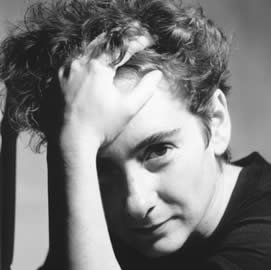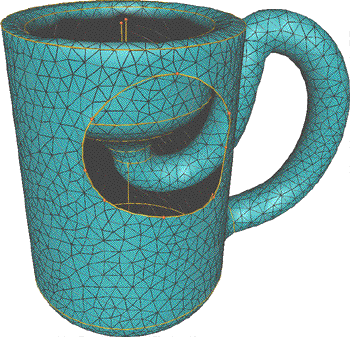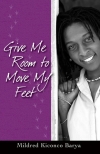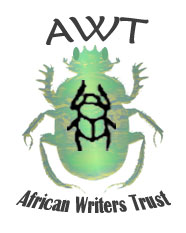Reading Jeanette is like embarking on a poetic body-heart-mind journey trusting that there will be a destination. Even if none surfaces, there’s so much pleasure in the reading process because of her style that defies form and traditional plot lines. Quantum physics is thrown in, and there’s great joy finding Newton and Einstein decoded on the pages of fiction, Gut Symmetries being the novel I’m writing about.
Jeanette’s writing is engaging in its attempt to go beyond the ‘boundaries’ of myth and magic, science and miracles, a quality that’s challenging as it is entertaining. The reader is invited to participate actively in the exploration, which frankly, is quite a task given the fact that she’s very experimental and complicates whatever problem she sets out to solve. You have to be alert to enjoy her writing, and one is helped by the language which is beautiful in its metaphorical richness. Fancy this passage from the narrator in Gut Symmetries:
“Any measurement must take into account the position of the observer. There’s no such a thing as measurement absolute, there is only measurement relative. Relative to what is an important part of the question. This has been my difficulty… Those well-built trig points, those physical determinants of parents, background, school, family, birth, marriage, death, love, work, are themselves as much in motion as I am. What should be stable, shifts. What I am told is solid, slips. The sensible strong ordinary world of fixity is a folklore. The earth is not flat. Geometry cedes to algebra. The Greeks were wrong… This is the difficulty. Now that physics is proving the intelligence of the universe what are we to do about the stupidity of humankind? I include myself. I know that the earth is not flat but my feet are. I know that space is curved but my brain has been cordoned by habit to grow in a straight line. What I call light is my own blend of darkness. What I call a view is my hand-painted trompe-l’oeil. I run after knowledge like a ferret down a ferret hole. My limitations, I call the boundaries of what can be known. I interpret the world by confusing other people’s psychology with my own. I say I am open-minded but what i think is.
According to Darwin the evolutionist, man stood upright when he shed his saurian tail. What happened to it? Here it is, in my hand, like a motley joke of the commedia dell’arte. My fool’s wand, my visible weakness, dropped off the back only to run round the front. I am civilized but my needs are not. What is it that lashes in the darkness?”
And so from that relative streaming position the narrator invites us to walk with her: “Walk with me,” she says, as an invitation to her journey, which is the past that’s not the past, memory, history, present and future. “The past lies in wait,” she says. “It is not behind. It seems to be in front. How else could it trip me as I start to run?”
Jeanette manipulates time and history to get to a magical fantasy that could be in the past, future or present. So clever are her twists and turns, with the body always in motion, the mind shifting, and the heart conflicted.
Narrative wise, what’s most compelling are pockets of stories within the story as she throws the heart and head in one conflict after another. For example, the narrator as a young girl hears her headmaster telling her father: “She’ll never be top drawer.” That night, she goes to her parents’ bedroom and examines their drawers. Her mother’s top contains her jewelry and scent, her father’s handkerchiefs. At the back of her father’s top drawer is his gold watch. “Is this what I would not be? Solid, reliable, valuable, conspicuous, extravagant, rare? I scattered the handkerchiefs like soft jewels. Is this what I would not be? Fancy, impudent, useful, beautiful, multiple, various, witty, gay?” Then she decides to open the lower drawers and she finds underwear, talcum powder and balled up socks.
Apparently, from Jeanette’s website, the title–Gut Symmetries–is a play on words. “GUT stands for Grand Unified Theory – the theory of everything science wants to discover – and it’s gut as in gut instinct, the feelings that lead us on much more than we like to admit. Symmetries, well, it’s the search for a perfect parallel universe, the one just like ours but without the problems. I suppose that’s what we look for when we fall in love…”
Very clever. Having read a lot of British realism in fiction, Jeanette’s experimental writing provides a fresh, interesting window. In some ways her Canadian-American counterpart would be Rivka Galchen: Atmospheric Disturbances.



No comments yet.